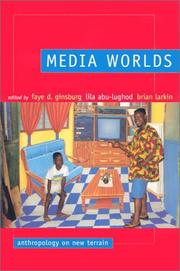| Listing 1 - 4 of 4 |
Sort by
|

ISBN: 052092245X 0585054479 9780520922457 9780585054476 0520064925 0520064933 9780520064928 0520064925 9780520064935 0520064933 Year: 1998 Publisher: [Place of publication not identified] University of California Press
Abstract | Keywords | Export | Availability | Bookmark
 Loading...
Loading...Choose an application
- Reference Manager
- EndNote
- RefWorks (Direct export to RefWorks)
Based on the struggle over a Fargo, North Dakota, abortion clinic, Contested Lives explores one of the central social conflicts of our time. Both wide-ranging and rich in detail, it speaks not simply to the abortion issue but also to the critical role of women's political activism.A new introduction addresses the events of the last decade, which saw the emergence of Operation Rescue and a shift toward more violent, even deadly, forms of anti-abortion protest. Responses to this trend included government legislation, a decline in clinics and doctors offering abortion services, and also the formation of Common Ground, an alliance bringing together activists from both sides to address shared concerns. Ginsburg shows that what may have seemed an ephemeral artifact of "Midwestern feminism" of the 1980s actually foreshadowed unprecedented possibilities for reconciliation in one of the most entrenched conflicts of our times.
Abortion --- Abortion services --- Pro-life movement --- Pro-choice movement --- Women social reformers --- Sociology & Social History --- Social Sciences --- Family & Marriage --- Social reformers --- Abortion rights movement --- Free-to-choose movement --- Freedom-of-choice movement --- Pro-abortion movement --- Right-to-choose movement --- Birth control --- Women's rights --- Anti-abortion movement --- Antiabortion movement --- Right-to-life movement (Anti-abortion movement) --- Abortion clinics --- Abortion facilities --- Birth control clinics --- Women's health services --- Abortion, Induced --- Feticide --- Foeticide --- Induced abortion --- Pregnancy termination --- Termination of pregnancy --- Fetal death --- Obstetrics --- Reproductive rights --- Case studies --- Government policy --- Citizen participation --- Moral and ethical aspects --- Religious aspects --- Surgery --- Public policy, united states. --- Induced, united states. --- Legal, united states. --- Case studies.

ISBN: 0807046124 0807046132 Year: 1990 Publisher: Boston Beacon Press
Abstract | Keywords | Export | Availability | Bookmark
 Loading...
Loading...Choose an application
- Reference Manager
- EndNote
- RefWorks (Direct export to RefWorks)
Feminism --- Sex role --- Women --- Gender identity --- Féminisme --- Rôle selon le sexe --- Femmes --- Identité sexuelle --- Social conditions --- Conditions sociales --- Féminisme --- Rôle selon le sexe --- Identité sexuelle --- United States
Periodical
Year: 1997 Publisher: Minneapolis ; London University of Minnesota Press
Abstract | Keywords | Export | Availability | Bookmark
 Loading...
Loading...Choose an application
- Reference Manager
- EndNote
- RefWorks (Direct export to RefWorks)

ISBN: 9780520232310 0520232313 0520224485 0520928164 1282759019 159734740X 9786612759017 9780520928169 9780520224483 9781597347402 1417520302 9781417520305 9781282759015 6612759011 Year: 2002 Publisher: Berkeley (Calif.): University of California press,
Abstract | Keywords | Export | Availability | Bookmark
 Loading...
Loading...Choose an application
- Reference Manager
- EndNote
- RefWorks (Direct export to RefWorks)
This groundbreaking volume showcases the exciting work emerging from the ethnography of media, a burgeoning new area in anthropology that expands both social theory and ethnographic fieldwork to examine the way media-film, television, video-are used in societies around the globe, often in places that have been off the map of conventional media studies. The contributors, key figures in this new field, cover topics ranging from indigenous media projects around the world to the unexpected effects of state control of media to the local impact of film and television as they travel transnationally. Their essays, mostly new work produced for this volume, bring provocative new theoretical perspectives grounded in cross-cultural ethnographic realities to the study of media.
Mass media and culture --- Mass media and culture. --- anthropologists. --- anthropology. --- cross cultural. --- cultural history. --- cultural studies. --- ethnographic. --- ethnographics. --- ethnography. --- film history. --- film studies. --- global. --- international. --- media history. --- media studies. --- media. --- multimedia. --- pop culture. --- social history. --- social studies. --- television history. --- television. --- theoretical. --- transnational.
| Listing 1 - 4 of 4 |
Sort by
|

 Search
Search Feedback
Feedback About UniCat
About UniCat  Help
Help News
News